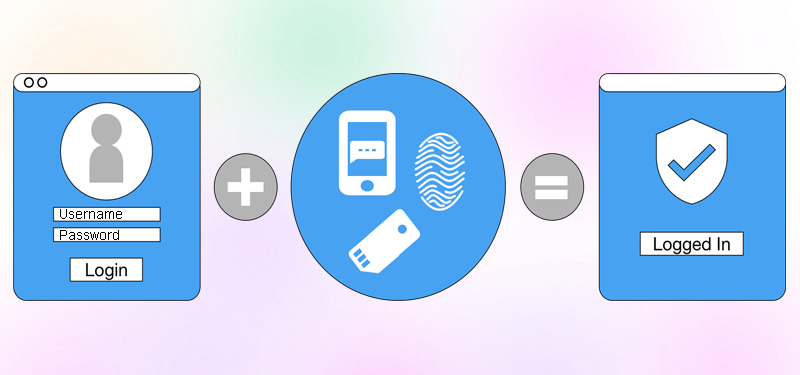7 Cost Effective Ways to Secure your Online Business Reputation from Cyber Threats
Cyber attacks endanger your online business and can lead to loss of vital data due to external infiltration. This can result in serious consequences such as staining your reputation and the loss of clients. Every day, cybersecurity threats are escalating and becoming more sophisticated. The internet is an open, unregulated space that makes it difficult to control or contain the spread of these malicious attacks. Cybercriminals can steal your identity, cause a data breach or even take down your company’s entire computer network with just a few keystrokes on their keyboard. Furthermore, the damage from cyber attacks can take your business years back and you can take a long time to recover. In severe instances, the degree of cyber attack damages cannot be undone. It is therefore important for you to protect your business from cyber threats before they even happen to avoid the setbacks that come with it. But how can your business do this? Here are 7 cost-effective ways to secure the reputation of your business online:
Quick Links
Educate your employees about cyber threats
Your employees are the weakest link to your online business reputation since hackers mainly target them to gain access to your online data. You can counter cyber threats by implementing and emphasizing on regular staff seminars and workshops to equip your employees with knowledge on how to identify vulnerabilities in your online business and how to act on them. During such training, ensure that their roles in the fight against cyber threats are underscored. Equipping your employees with this knowledge and helping them understand that they have a responsibility eliminates carelessness and ignorance, ensuring that your business remains secure.
Limit access to your business data
Your business holds a lot of confidential information about employees, clients, strategies and much more. If such data gets to the wrong hands, your online business will be at risk of losing its reputation. In extreme cases, such incidents can cause investors to pull out citing breach of trust and can ultimately result in bankruptcy. To avoid all these, you should continually update and maintain a user access privilege list to ensure that only authorized employees have the right to access privileged information. Other ways to limit data access include data encryption and the use of BYOD (Bring Your Own Device) policy. In the BYOD policy, employees should be advised to store sensitive information in their personal devices to avoid instances of theft.
Adopt a strict password policy
Passwords are the gateway to your online business data and should, therefore, be protected at all costs. Hackers target your passwords first before divulging into other ways to access your data. As such, simple, straight-forward passwords are easy for hackers to figure out as they pay attention to every available clue. To ensure that your business information is secure, you should implement a strict password policy to make it hard for hackers to gain unauthorized access to your confidential files and data. This involves creating long and complex secret codes that contain letters, numbers, special characters, and punctuation marks if possible. Such adherence will mitigate the risks of getting hacked regardless of the expertise such perpetrators might have.
Make use of Multi-Factor Authentication (MFA)

MFA refers to the use of extra verifications that may include the adoption of biometrics to protect your business data. This means if hackers access your passwords, they will not be able to get access to your online business data. This is because biometric data is unique to an individual and is therefore effective in eliminating impersonation. As such, persons such as company executives and employees, who are the most likely targets of cyber attacks, can rest assured that the business data stays safe even if passwords get stolen.
Set up a firewall
A firewall is a must-have for any online business that wants to protect its website. Firewalls play an important role in searching for and blocking malicious traffic. It also protects your employees from navigating harmful sites. This is important because hackers force cookies that infiltrate your computer once you click on an advert. Firewall technology also safeguards your internet connection from peeping-tom intrusions that compromise your privacy. When you have a firewall in place, you can focus on your business activities without having to worry about your computer getting infected.
Use reputable antivirus software
The most basic and reliable way to secure your online business from cyber threats is to use reputable anti-malware software. Such software works like a firewall but features additional perks of an all-round antivirus scanning. There are different types of antimalware technology so be sure to get ProsNet Bundaberg advice on how to get the most reputable antivirus software. This involves getting conversant with the different antivirus software available and selecting the one that updates itself automatically so you recognize current threats early enough.
Protect the business Wi-Fi
Having a Wi-Fi network around your business premises enables you to attract more clients. However, this technology poses the greatest risk to your online business because it makes it vulnerable to attacks. As such, you need to safeguard it at all costs. This involves securing your guest Wi-Fi with a strong password to protect all the users connected to it. Apart from increasing your productivity, you will also reap the benefits of enhanced employee and client satisfaction.
What Is WooCommerce Product Slider and Why Your Store Needs It
Why Do Product Images Matter So Much in Online Stores? When someone visits an online store the…
0 Comments9 Minutes
How to Streamline Your Customers’ Shopping Experience?
The goal for any online store is to make shopping as smooth as possible. When visitors move…
0 Comments8 Minutes
Strengthening Brand-Customer Relationships Through Gamified Loyalty Programs
Creating lasting connections with customers has become increasingly vital as the marketplace grows…
0 Comments6 Minutes
How to Use SEO and SEA Together in Search Engine Marketing
In digital marketing, search engine marketing (SEM) plays a critical role in improving online…
0 Comments10 Minutes
Content Marketing Growth Hacks: Real Shortcuts to Drive Traffic
Are you still lagging in content marketing? Sticking to these old strategies seems…
0 Comments10 Minutes
How to Build a Strong Local Following Using Social Media Marketing
In the days of likes, shares, and stories, local businesses have a golden opportunity to create…
0 Comments9 Minutes
Why WooCommerce is the Best Choice for Your Online Store?
WooCommerce stands out as a top option for anyone looking to build an online store. This platform…
0 Comments8 Minutes
How to Use AI-Powered SEO Tools for WordPress eCommerce
SEO is a critical factor in the success of any e-commerce WordPress store. As competition…
0 Comments11 Minutes








